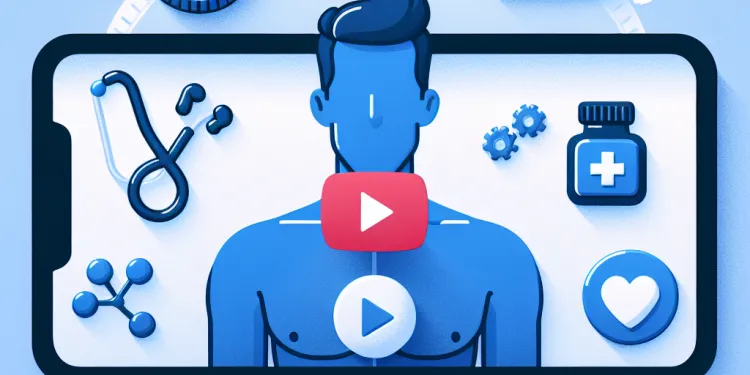
Find Help
More Items From Ergsy search
-
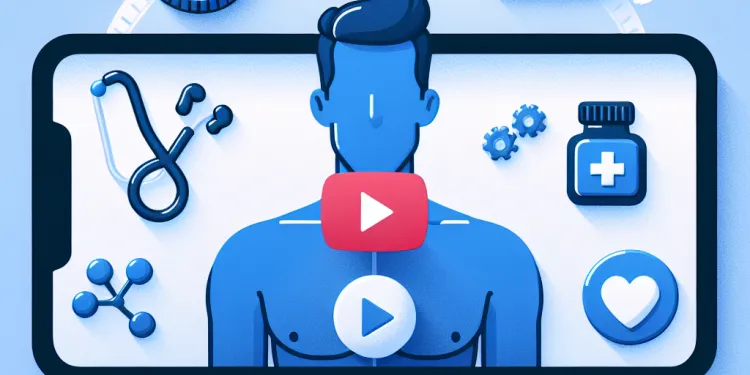
Am I more at risk of prostate cancer?
Relevance: 100%
-

Does BPH increase the risk of prostate cancer?
Relevance: 91%
-

What is Prostate Cancer?
Relevance: 85%
-

Living with prostate cancer
Relevance: 82%
-

Treating prostate cancer
Relevance: 82%
-

Prostate cancer diagnosis and tests
Relevance: 80%
-

Why do men get prostate cancer?
Relevance: 80%
-

Is BPH the same as prostate cancer?
Relevance: 79%
-

How is prostate cancer treated?
Relevance: 78%
-
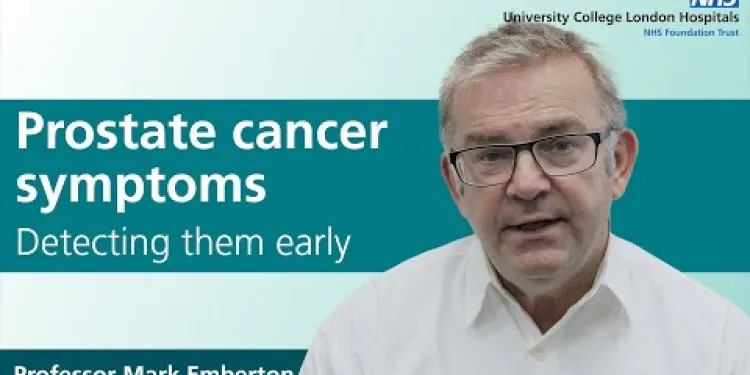
Prostate cancer symptoms - detecting them early
Relevance: 77%
-
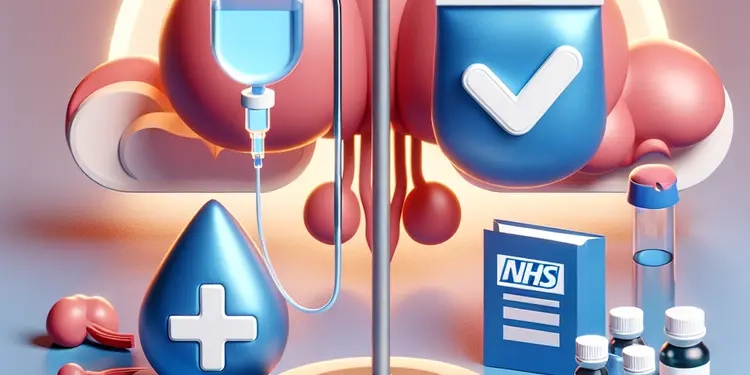
When is chemotherapy used for prostate cancer?
Relevance: 76%
-
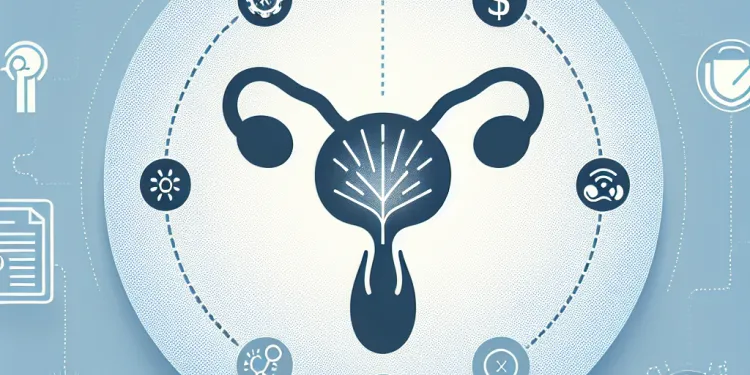
Hormone Therapy for prostate cancer
Relevance: 75%
-

Is focal therapy an option for prostate cancer?
Relevance: 75%
-

How is advanced prostate cancer treated?
Relevance: 74%
-

Can prostate cancer recur after treatment?
Relevance: 74%
-

What are PSA levels? - Prostate Cancer
Relevance: 74%
-

How does surgery treat prostate cancer?
Relevance: 74%
-

Can Abiraterone be used for early-stage prostate cancer?
Relevance: 74%
-

Are there specific vegetables that are more effective against prostate cancer?
Relevance: 74%
-

Are there clinical trials available for prostate cancer treatment?
Relevance: 73%
-

What is the role of immunotherapy in prostate cancer treatment?
Relevance: 73%
-

Does Abiraterone cure prostate cancer?
Relevance: 73%
-

What is active surveillance in prostate cancer treatment?
Relevance: 72%
-

How does cryotherapy work in treating prostate cancer?
Relevance: 72%
-

What are the side effects of prostate cancer surgery?
Relevance: 72%
-

Breakthrough in Cancer Treatment Offers Hope for Prostate Cancer Patients
Relevance: 72%
-

Can I access prostate cancer information online through the NHS?
Relevance: 71%
-

Can eating vegetables help slow the progression of prostate cancer?
Relevance: 71%
-

Can lifestyle changes complement prostate cancer treatment?
Relevance: 71%
-

What type of research supports the role of diet in prostate cancer management?
Relevance: 70%
-

Is there an NHS app for managing prostate cancer care?
Relevance: 70%
-

Can eating vegetables and probiotics help slow prostate cancer?
Relevance: 70%
-

Can prostate cancer be treated with targeted therapy?
Relevance: 70%
-

What factors determine the treatment plan for prostate cancer?
Relevance: 70%
-

What role do probiotics play in managing prostate cancer?
Relevance: 70%
-

How does hormone therapy help in treating prostate cancer?
Relevance: 69%
-

What is the purpose of a bone scan in prostate cancer treatment?
Relevance: 69%
-

Are there online support services for prostate cancer patients on the NHS?
Relevance: 69%
-

Does the NHS offer an online hospital for prostate cancer?
Relevance: 69%
-

Does the NHS offer an online hospital for prostate cancer?
Relevance: 68%
Understanding Your Risk of Prostate Cancer
Prostate cancer is a significant health concern for men, particularly as they age. Understanding your risk factors can help you make informed decisions about screening and prevention. This article explores the various risk factors for prostate cancer, particularly relevant to readers in the United Kingdom.
Age and Prostate Cancer Risk
Age is one of the most significant risk factors for prostate cancer. The disease is rare in men under 50, but the risk increases as men age. In the UK, approximately 75% of prostate cancer cases occur in men over 65. Regular screening is recommended for men over 50 or even younger if you have other risk factors.
Family History and Genetic Factors
Your family history can substantially impact your prostate cancer risk. If a close relative, such as a father or brother, has had prostate cancer, your risk may be two to three times higher. Additionally, genetic factors, such as mutations in the BRCA1 and BRCA2 genes, typically associated with breast cancer, can also increase your risk. Discussing your family history with a healthcare professional can ensure you receive the appropriate surveillance and genetic counseling if needed.
Ethnic Background
In the UK, men of African or Caribbean descent are at a higher risk of developing prostate cancer compared to Caucasian men. Research is ongoing to understand the genetic and environmental factors contributing to this increased risk. However, being aware of this elevated risk can help in making timely decisions regarding the screening process.
Lifestyle Factors
Certain lifestyle factors may also influence your risk of prostate cancer. Diets high in red meat and high-fat dairy products may increase risk, while a diet rich in fruits and vegetables may have a protective effect. Maintaining a healthy weight and engaging in regular physical activity are advisable as part of general cancer prevention strategies. Smoking has not been directly linked to prostate cancer, but it can worsen outcomes if you have the disease.
Conclusion
While some risk factors, such as age and genetic predisposition, are beyond control, being aware of these can help you and your healthcare provider make informed decisions regarding screening and prevention. Converse with your doctor about your risk factors and whether regular screening or lifestyle changes might be appropriate for you. Early detection and intervention remain crucial in managing prostate cancer effectively.
Understanding Your Risk of Prostate Cancer
Prostate cancer is a type of cancer that affects men, especially as they get older. Knowing what increases your risk can help you decide about checking for cancer and staying healthy. This guide will explain what makes prostate cancer more likely for men in the United Kingdom.
Age and Prostate Cancer Risk
Getting older is a big reason why men might get prostate cancer. It doesn't happen much in men under 50, but it’s more common as men age. In the UK, most cases happen in men over 65. Doctors suggest regular checks for men over 50, or even younger if other risks are present.
Family History and Genetic Factors
Your family history is important. If your dad or brother had prostate cancer, you are more likely to get it, too. Certain genes, like BRCA1 and BRCA2, can also increase your risk. Talk to a doctor about your family’s medical history. They can help you decide if you need extra checks or genetic advice.
Ethnic Background
In the UK, men who are African or Caribbean are at a higher risk for prostate cancer than Caucasian men. Researchers are studying why. Knowing your background can help you and your doctor decide about early checks.
Lifestyle Factors
The way you live can affect your prostate cancer risk. Eating a lot of red meat and high-fat dairy might increase the risk. Eating fruits and vegetables is helpful. Keeping a healthy weight and exercising is good for you. Smoking is bad for cancer recovery, even if it doesn’t directly cause prostate cancer.
Conclusion
Some risks, like age and genes, can’t be changed. But knowing about them helps you make good health choices. Talk to your doctor about what risks you have. They can tell you if you need regular checks or if changing your habits could help. Finding prostate cancer early is very important to manage it well.
Frequently Asked Questions
What is prostate cancer?
Prostate cancer is a form of cancer that develops in the tissues of the prostate, a gland in the male reproductive system found below the bladder. It is one of the most common cancers in men, especially in the UK.
Am I at risk of prostate cancer if I have a family history?
Having a father or brother who has had prostate cancer can increase your risk, especially if they were diagnosed before the age of 60.
Does age affect the risk of prostate cancer?
Yes, age is a significant risk factor. The risk of prostate cancer increases as you get older, particularly after age 50.
Are certain ethnic groups more at risk of prostate cancer?
Yes, men of African-Caribbean and African descent have higher risks of developing prostate cancer compared to other ethnic groups in the UK.
Can lifestyle choices impact my risk of prostate cancer?
A healthy diet and regular physical activity may help reduce the risk of prostate cancer, although the exact links are not fully understood. Obesity has also been associated with an increased risk.
How does diet impact prostate cancer risk?
A diet high in red meat and high-fat dairy products may increase the risk of prostate cancer, while a diet rich in fruits and vegetables might lower the risk.
Can smoking influence my chances of getting prostate cancer?
Smoking is not directly linked to an increased risk of developing prostate cancer, but it can affect the severity and treatment outcomes of the disease.
What are the symptoms of prostate cancer?
Symptoms can include difficulty urinating, frequent urination especially at night, weak or interrupted urine flow, and blood in urine. However, early-stage prostate cancer may not show any symptoms.
How is my risk of prostate cancer assessed?
Your GP may assess your risk based on personal and family medical history, and for men over 50, a PSA blood test may be used to screen for prostate cancer.
What is a PSA test and how does it relate to prostate cancer?
The prostate-specific antigen (PSA) test measures the level of PSA in the blood. High levels can be a sign of prostate cancer, but can also indicate other conditions. It's not a definitive test but can be a helpful screening tool.
Can prostate cancer be prevented?
While there is no definite way to prevent prostate cancer, maintaining a healthy lifestyle with a balanced diet and regular exercise may help lower the risk.
Should I get screened for prostate cancer?
Screening is a personal choice. Men over 50, or those over 45 with a family history or higher risk due to ethnicity, should discuss the advantages and disadvantages of screening with their GP.
How is prostate cancer treated?
Treatment options depend on the stage of the cancer and can include surgery, radiation therapy, hormone therapy, and active surveillance for less aggressive cancers.
Does having BPH increase my risk of prostate cancer?
Benign prostatic hyperplasia (BPH) is not cancer and does not increase the risk of prostate cancer, although it can cause some similar urinary symptoms.
What support is available for men with prostate cancer in the UK?
Numerous organisations, such as Prostate Cancer UK and Macmillan Cancer Support, offer resources and support for men with prostate cancer. They provide information, support groups, and practical advice.
What is prostate cancer?
Prostate cancer is when bad cells grow in the prostate. The prostate is a small part inside a man's body. It helps make some of the liquid in sperm.
If you find it hard to read, you can ask someone to help you. You can also use tools that read the text out loud for you.
Prostate cancer is a type of cancer that starts in the prostate. The prostate is a small gland in men. It is below the bladder. Many men in the UK get prostate cancer.
Could I Get Prostate Cancer if It Runs in My Family?
If someone in your family had prostate cancer, you might have a higher chance of getting it too. It's like if your dad or grandpa had it.
If you are worried, it is a good idea to talk to a doctor. They can help you understand your chances.
Using a calendar or asking a friend can help you remember to go to the appointment.
If your dad or brother had prostate cancer, you might have a higher chance of getting it too. This is more likely if they were told they had cancer before they turned 60.
Can getting older make prostate cancer more likely?
Yes, getting old is a big reason you might get sick. The chance of getting prostate cancer goes up as you get older, especially after you turn 50.
Do some ethnic groups have a higher chance of getting prostate cancer?
Yes, men from African-Caribbean and African backgrounds are more likely to get prostate cancer than men from other ethnic groups in the UK.
Can the way I live change my chances of getting prostate cancer?
Eating the right foods and being active can help lower the chance of getting prostate cancer. We don't know exactly how yet. Being very overweight is also linked to a higher chance of getting it.
How does what we eat change the risk of getting prostate cancer?
What we eat can change how likely we are to get prostate cancer. Prostate cancer is a sickness that men can get. Eating healthy foods might help lower the risk. Foods like fruits, vegetables, and whole grains are good choices. It is also important to eat less red meat and foods with a lot of fat.
Some people find it helpful to use pictures or drawings to learn about healthy eating. Talking to a doctor or a dietitian can give more easy tips about foods that help stay healthy.
Eating a lot of red meat and high-fat dairy can make it more likely to get prostate cancer. But eating lots of fruits and vegetables might help to lower the risk.
Can smoking affect my risk of getting prostate cancer?
Smoking might make you more likely to get prostate cancer. Prostate cancer is a disease that affects a part of a man's body called the prostate. This can be serious, so it's important to be careful.
If you smoke, try to stop. This can help you stay healthy. You can use tools like nicotine gum or patches. Talking to a doctor can also help. They can give advice on how to quit smoking.
Staying healthy is important. Eating good food, exercising, and not smoking can help lower your risk of getting cancer.
Smoking does not cause more people to get prostate cancer. But, if someone has prostate cancer and smokes, it can make the illness worse and harder to treat.
What are the signs of prostate cancer?
Prostate cancer is an illness for men. Here are some signs:
- Need to pee often, especially at night.
- Trouble starting or stopping peeing.
- Weak pee flow.
- Pain when peeing.
- Blood in pee or semen.
- Feeling pain in the back, hips, or pelvis.
If you feel any of these signs, talk to a doctor. A doctor can help you know what to do next.
Here are some tips to make reading easier:
- Use a ruler or your finger to follow the words.
- Read slowly and take your time.
- Ask someone to help you if you find it hard.
- Use a computer or phone to read it aloud.
Signs of prostate cancer can be:
- Having trouble peeing.
- Needing to pee a lot, especially at night.
- Having a weak or stop-and-start pee stream.
- Finding blood in pee.
But sometimes, when prostate cancer is just starting, you might not see any signs.
If you're having trouble with these signs, talking to a doctor can help. Using reminder notes or asking someone you trust for support can make it easier to talk about it.
How do doctors check for prostate cancer risk?
Your doctor looks at your health and your family's health to see if you might have a problem. If you are a man over 50, your doctor might do a blood test called PSA. This test checks for prostate cancer.
What is a PSA test and how does it relate to prostate cancer?
A PSA test is a blood test. It looks for a substance made by the prostate. This substance is called PSA.
PSA levels can be high if there is prostate cancer. But other things can also make PSA levels go up.
It's important to talk to a doctor. They can explain what the test results mean.
If you find it hard to read, you can use tools like audiobooks or text-to-speech apps. These can read the words out loud for you.
The PSA test checks how much PSA is in your blood. High PSA can mean you might have prostate cancer, but it can also mean other things. This test isn't perfect, but it can help doctors see if there is a problem.
To make it easier to understand this information, you can use pictures, diagrams, or simple charts. Reading with a friend or using tools like a text-to-speech app can also help.
Can you stop prostate cancer from happening?
We can do things that might help us stay healthy and lower the chance of getting prostate cancer. Eating good foods, doing exercise, and going to the doctor regularly might help. But, we can't be sure to stop cancer completely.
Some tools can help you understand more:
- Picture Charts: Look at pictures that explain things.
- Audio Books: Listen to stories that explain health topics.
There is no sure way to stop prostate cancer. But staying healthy can help. Eat good food and exercise often. This might make the chance of getting prostate cancer smaller.
Should I get a test for prostate cancer?
Getting a test means checking to see if you have a problem with your prostate. The prostate is a small gland in the body. A test can help doctors find prostate cancer early.
If you are a man and getting older, you might think about getting this test. Talk to a doctor to see if the test is right for you. They can give you good advice.
Use simple tools like videos or ask someone you trust to help you understand more about it. Remember, it is always okay to ask questions if you are not sure.
Checking for health problems is up to you. Men over 50, or men over 45 who have a family member with the illness or are from certain ethnic backgrounds, should talk to their doctor. They can help you understand the good and bad parts of getting checked.
How do doctors help people with prostate cancer?
Doctors have different ways to help if someone has prostate cancer. They might use medicine, an operation, or special rays called radiation.
Sometimes doctors watch and check how the cancer is growing before they decide. This is called "active surveillance."
Every person is different, so the doctor will talk with them to find the best way to help.
If you want more help to understand, you can:
- Ask questions to your doctor or nurse.
- Look at pictures or videos that explain it.
- Use a pen and paper to write down important things.
How we treat cancer depends on how far along it is. Some ways to treat cancer are:
- Having an operation to take out the cancer (surgery).
- Using strong rays to kill cancer cells (radiation therapy).
- Taking medicine to change hormones and stop cancer (hormone therapy).
- If the cancer is not very strong, we might just watch it closely instead of treating it right away (active surveillance).
It helps to talk to doctors. They can explain the best treatment for you. You can also ask someone you trust to go with you to the doctor or help you remember the information. Using pictures or writing down notes can also help you understand better.
Can BPH make it more likely for me to get prostate cancer?
Benign prostatic hyperplasia (BPH) is not cancer. It doesn't make it more likely to get prostate cancer. But it can cause similar problems when you pee.
Help for Men with Prostate Cancer in the UK
Men with prostate cancer in the UK can get different types of help:
- Doctors and Nurses: They can talk to you about your cancer and help you with treatment.
- Support Groups: You can meet other men with prostate cancer. You can talk and share how you feel.
- Helplines: You can call and talk to someone about your worries or questions.
- Websites: There are online places where you can find lots of information.
- Family and Friends: Talk to people you love and trust. They can give you support.
If reading is hard, you can:
- Ask someone to read to you.
- Use a computer or phone to listen to the text.
- Focus on one sentence at a time.
- Take breaks when you need to.
Many groups like Prostate Cancer UK and Macmillan Cancer Support help men with prostate cancer. They give information, support groups, and practical help.
Useful Links
This website offers general information and is not a substitute for professional advice.
Always seek guidance from qualified professionals.
If you have any medical concerns or need urgent help, contact a healthcare professional or emergency services immediately.
Some of this content was generated with AI assistance. We’ve done our best to keep it accurate, helpful, and human-friendly.
- Ergsy carfully checks the information in the videos we provide here.
- Videos shown by Youtube after a video has completed, have NOT been reviewed by ERGSY.
- To view, click the arrow in centre of video.
- Most of the videos you find here will have subtitles and/or closed captions available.
- You may need to turn these on, and choose your preferred language.
- Go to the video you'd like to watch.
- If closed captions (CC) are available, settings will be visible on the bottom right of the video player.
- To turn on Captions, click settings .
- To turn off Captions, click settings again.
More Items From Ergsy search
-

Am I more at risk of prostate cancer?
Relevance: 100%
-

Does BPH increase the risk of prostate cancer?
Relevance: 91%
-

What is Prostate Cancer?
Relevance: 85%
-

Living with prostate cancer
Relevance: 82%
-

Treating prostate cancer
Relevance: 82%
-

Prostate cancer diagnosis and tests
Relevance: 80%
-

Why do men get prostate cancer?
Relevance: 80%
-

Is BPH the same as prostate cancer?
Relevance: 79%
-

How is prostate cancer treated?
Relevance: 78%
-

Prostate cancer symptoms - detecting them early
Relevance: 77%
-

When is chemotherapy used for prostate cancer?
Relevance: 76%
-

Hormone Therapy for prostate cancer
Relevance: 75%
-

Is focal therapy an option for prostate cancer?
Relevance: 75%
-

How is advanced prostate cancer treated?
Relevance: 74%
-

Can prostate cancer recur after treatment?
Relevance: 74%
-

What are PSA levels? - Prostate Cancer
Relevance: 74%
-

How does surgery treat prostate cancer?
Relevance: 74%
-

Can Abiraterone be used for early-stage prostate cancer?
Relevance: 74%
-

Are there specific vegetables that are more effective against prostate cancer?
Relevance: 74%
-

Are there clinical trials available for prostate cancer treatment?
Relevance: 73%
-

What is the role of immunotherapy in prostate cancer treatment?
Relevance: 73%
-

Does Abiraterone cure prostate cancer?
Relevance: 73%
-

What is active surveillance in prostate cancer treatment?
Relevance: 72%
-

How does cryotherapy work in treating prostate cancer?
Relevance: 72%
-

What are the side effects of prostate cancer surgery?
Relevance: 72%
-

Breakthrough in Cancer Treatment Offers Hope for Prostate Cancer Patients
Relevance: 72%
-

Can I access prostate cancer information online through the NHS?
Relevance: 71%
-

Can eating vegetables help slow the progression of prostate cancer?
Relevance: 71%
-

Can lifestyle changes complement prostate cancer treatment?
Relevance: 71%
-

What type of research supports the role of diet in prostate cancer management?
Relevance: 70%
-

Is there an NHS app for managing prostate cancer care?
Relevance: 70%
-

Can eating vegetables and probiotics help slow prostate cancer?
Relevance: 70%
-

Can prostate cancer be treated with targeted therapy?
Relevance: 70%
-

What factors determine the treatment plan for prostate cancer?
Relevance: 70%
-

What role do probiotics play in managing prostate cancer?
Relevance: 70%
-

How does hormone therapy help in treating prostate cancer?
Relevance: 69%
-

What is the purpose of a bone scan in prostate cancer treatment?
Relevance: 69%
-

Are there online support services for prostate cancer patients on the NHS?
Relevance: 69%
-

Does the NHS offer an online hospital for prostate cancer?
Relevance: 69%
-

Does the NHS offer an online hospital for prostate cancer?
Relevance: 68%


